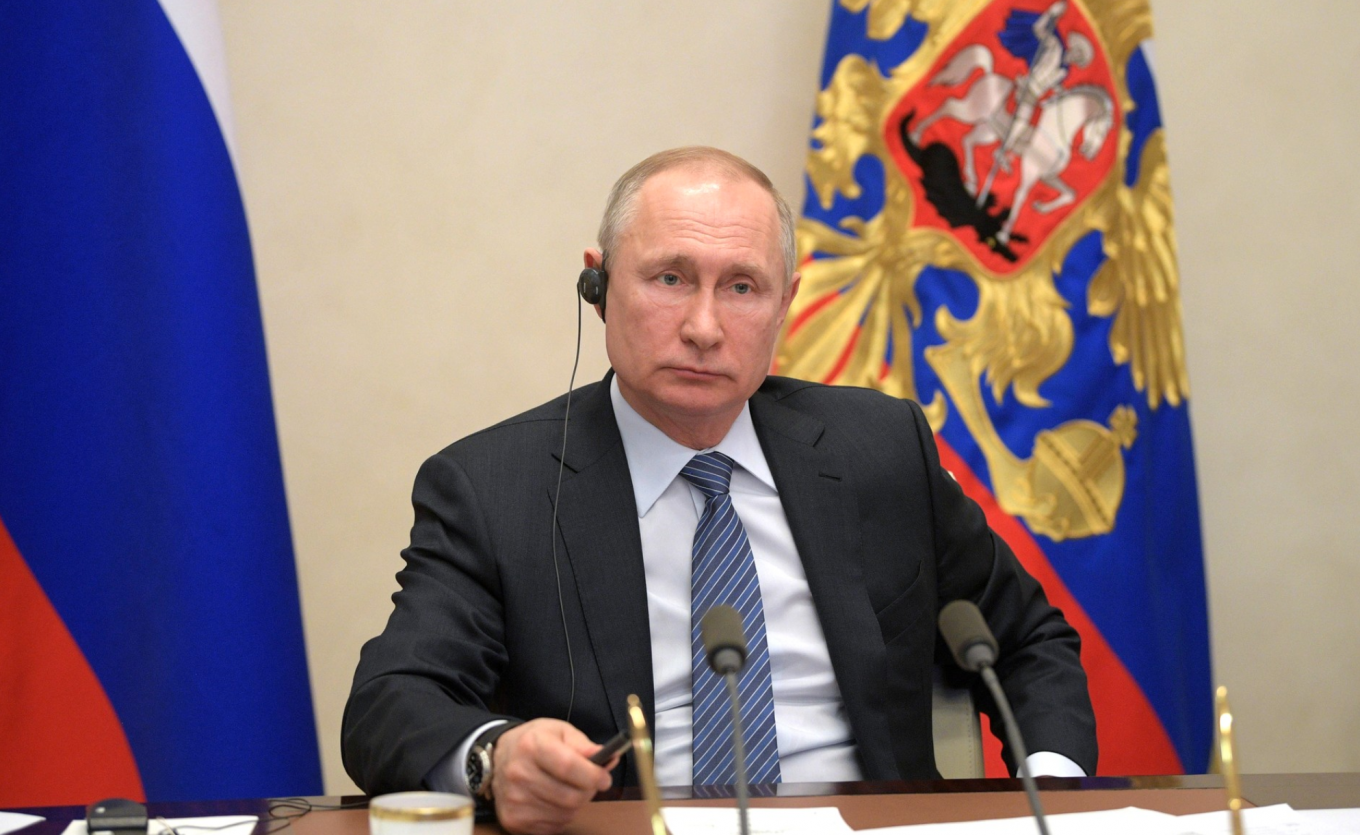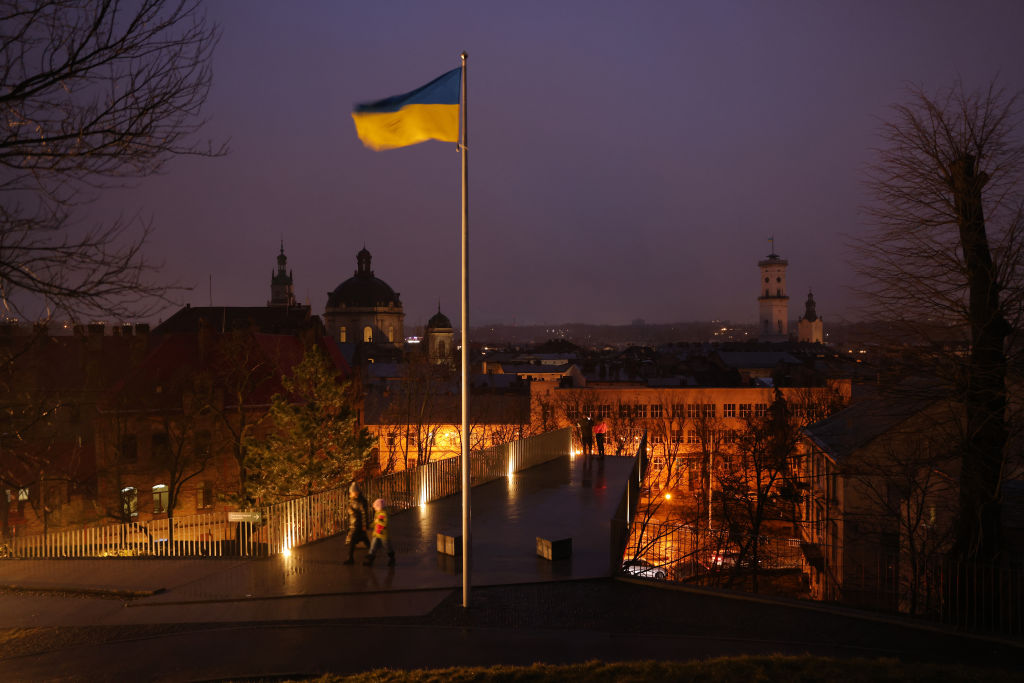
Spurning Pair of International Summits, Putin Denounces Globalization
Spurning Pair of International Summits, Putin Denounces Globalization
The back-to-back international summits of the G20 in Rome and COP26 in Glasgow at the end of October brought together hosts of dignitaries and hordes of activists, but one global leader was conspicuously absent—Russian President Vladimir Putin. One week prior, at the annual gathering of the Valdai Club (October 18–21), he not only decried the ostensible crisis of Western capitalism but also dismissed the search for global solutions to global problems as unrealistic (Kremlin.ru, October 21; see EDM, October 25). His recipe for addressing the challenges of global disorder is based on strengthening the centrality of the state, an old idea that potentially would have been more convincing coming from Putin were the Russian state successful in countering the double disasters of climate change and the COVID-19 pandemic at home. However it has not been (see EDM, May 26, July 6, September 30, October 28); and this abject failure gives new energy to the cause of strengthening the unity and leadership of democratic states, as championed by United States President Joseph Biden.
Biden’s positions are far from solid, and Russian commentators eagerly pick on his domestic troubles and the massive resistance in the US to every step in advancing the “green agenda” (Nezavisimaya Gazeta, October 28). At the same time, the debates in Rome and Glasgow over the urgency and costs of measures designed to reduce carbon emissions were, indeed, fierce. Thus, Putin clearly seeks to moderate his climate skepticism and adopt a more agreeable rhetoric, all while scolding the European Union for unrealistic aspirations and unfair competition (Rossiyskaya Gazeta, October 30). Igor Sechin, the boss of the state-owned oil giant Rosneft and Putin’s long-time confidante, tried to rally European opinion-makers last week around Russian propositions for greater use of natural gas (preferably imported from Russia) as an alternative to coal (Kommersant, October 28). This argument is not without rationale, but the plans for expanding oil and gas production clash with the plain fact that Russia, with its melting permafrost, is atop the list of states most vulnerable to climate change (Izvestia, October 28).
In terms of the second key theme of last weekend’s global discussions—the continuing struggle against the COVID-19 pandemic—Putin has had little to say, except for pointing to the pronounced tendency of many states to close their borders and concentrate on domestic needs. This platitude cannot camouflage Russia’s double failure: its “vaccine diplomacy” is undercut by the inability to provide reliable data for the international certification of the Sputnik V vaccine (see EDM, March 25), and the inoculation campaign has hit a wall of mistrust among Russians because of the unintended consequences of state propaganda (TASS, October 22; Republic.ru, October 27; see EDM, August 2). The force of the ongoing autumnal wave of the pandemic has shocked the authorities so considerably that an extra-tight lockdown is presently enforced in Moscow, St. Petersburg and many other regions (see EDM, October 28). Demographers estimate the excess mortality for October at 100,000 lives, and they expect it to exceed 120,000 in November, making Russia ground zero in the current stage of the pandemic (Svoboda.org, October 28). The economic costs are carefully hidden by official statistics and partly compensated for by extra petro-revenues. But one particular area badly hit area has been Russian-Chinese economic ties, which Beijing has deliberately curtailed to prevent the import of the coronavirus that it failed to contain in Wuhan back in the autumn of 2019 (Carnegie.ru, October 20).
One global issue that noticeably agitates Putin is the uncontrolled spread of information via online social networks, of which he remains remarkably ignorant and invariably indignant. The responsibility of such tech-giants as, for instance, Facebook for spreading violence-inciting information and fake news is, indeed, a major international contention; but Putin’s prejudice goes much further than the self-regulation that these platforms are ready to execute (Kommersant, October 27). He wants total control over Russia’s information space, similar to what China has resolutely maintained inside its virtual borders. However, the Russian special services have much less technical capacity for such suppression of fast-evolving social networks and can only deliver selective punishment to some bloggers who dare to defy multiplying prohibitions (RBC, October 29). These harsh persecutions produce more indignation than fear. Thus, Novaya Gazeta, led by 2021 Nobel Peace Prize laureate Dmitry Muratov, has been transforming itself from a small-circulation newspaper into an impactful media platform that can expose such ignominious features of Putin’s system of power as widespread torture in Russian prisons (Novaya Gazeta, October 29; see EDM, October 21).
Protecting media freedom is, in fact, a major theme in the current phase of globalization, which has evolved far from the basic agenda of stimulating international trade and investment—but Russia can hardly make any notable contribution even to these matters, except to prompt the oil price to reach the mark of $100 per barrel (Rosiyskaya Gazeta, October 31). Moscow is absent from key trade talks, and insists instead that the central role in regulating and directing globalization must belong to the United Nations, where it enjoys the privilege of a permanent member of the Security Council but contributes little to the workings of many UN agencies, including those preparing the COP26 climate agenda (Russiancouncil.ru, October 25). It was Turkish President Recep Tayyip Erdoğan who took aim at this stance, asserting that the fate of humanity could not be left to the mercy of a handful of countries that won World War II (RIA Novosti, October 19). This criticism deeply irked Putin because he perceives Russia’s veto right as “sacred” and because boosting the heroic memory of the Great Patriotic War is the central part of his self-serving ideology (RBC, October 21).
Globalization is a dynamic, hugely complex and often painful process that can no more be disrupted by objections of one particularly disagreeable world leader than capitalism can simply be canceled. Putin is irritated at finding himself irrelevant in crucial global discussions, but it is his leadership that has delivered Russia to the position of irrelevance in the most consequential international interactions. He cannot even count on his long-cultivated partnership with Chinese President Xi Jinping, because China’s global interests are centered on securing the sustainability of its phenomenal economic growth, while Russia’s economy is stuck in stagnation. The Kremlin makes the issue of the decline of the West and erosion of US leadership the central premise of its attack on globalization, but the constant troubles that Russia is so keen to make in Ukraine, Syria and even Africa create an imperative for the West to restore its unity.


